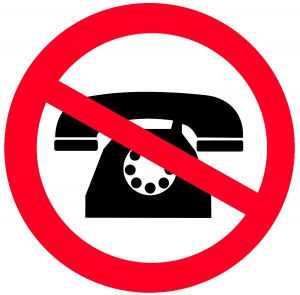April 13, 2015
 Last month, the United States Court of Appeals for the Eleventh Circuit clarified the standard for obtaining treble damages under the Telephone Consumer Protection Act (“TCPA”). In Lary v. Trinity Physician Financial & Insurance Services, the district court declined to award treble damages to the plaintiff on a motion for default judgment. On appeal, the Eleventh Circuit affirmed the holding of the district court and stated that to obtain treble damages, a plaintiff must prove that the defendant placed calls in knowing violation of the TCPA.
Last month, the United States Court of Appeals for the Eleventh Circuit clarified the standard for obtaining treble damages under the Telephone Consumer Protection Act (“TCPA”). In Lary v. Trinity Physician Financial & Insurance Services, the district court declined to award treble damages to the plaintiff on a motion for default judgment. On appeal, the Eleventh Circuit affirmed the holding of the district court and stated that to obtain treble damages, a plaintiff must prove that the defendant placed calls in knowing violation of the TCPA.
Do TCPA Plaintiffs Obtain Treble Damages as a Matter of Course?
Standard for Obtaining Treble Damages under the TCPA
In Lary, the plaintiff, a medical practitioner, received unsolicited advertisements sent to his fax machine, which was connected to an emergency telephone line. The plaintiff alleged that the defendant used an automatic telephone dialing system to send a commercial advertisement to his emergency telephone line. The defendant affirmatively chose not to answer the plaintiff’s complaint and default to allow the district court to determine damages. Although the plaintiff pleaded that the defendant “willfully” and “knowingly” violated the TCPA, the district court declined to award treble damages.
In affirming the district court, the Eleventh Circuit stated that “to violate [the TCPA], a defendant must know that he is using an ‘automatic telephone dialing system’ to place a ‘call,’ and that the call is directed toward an ‘emergency’ line . . . . If we interpreted the statute to require only that the violator knew he was making a ‘call’ or sending a fax, the statute would have almost no room for violations that are not ‘willful[]’ or ‘knowing[].’” Accordingly, the Court held that a plaintiff can only recover damages if he or she is able to prove through evidence that the defendant’s violation of the TCPA was indeed “willful” and “knowing.”
Protect Yourself
We have blogged about the “do’s and don’ts” in defending a TCPA lawsuit. Recently, a commissioner of the Federal Communications Commission (“FCC”) blogged that “it is time [for the FCC] to provide clarity” concerning the TCPA in response to the recent rise in TCPA litigation. The Eleventh Circuit’s ruling takes a step toward providing more clarity from a court of law.
If you are interested in learning more about this topic or if you have been served with process concerning the TCPA or your telemarketing practices, please e-mail us at info@kleinmoynihan.com or call us at (212) 246-0900.
The material contained herein is provided for informational purposes only and is not legal advice, nor is it a substitute for obtaining legal advice from an attorney. Each situation is unique, and you should not act or rely on any information contained herein without seeking the advice of an experienced attorney.
Attorney Advertising
Similar blog posts:
Facebook Sued for Alleged TCPA Text Message Violations
Another Court Weighs in on TCPA Definition of Autodialer
Life Time Fitness to Pay up to $15 Million to Settle TCPA Class Action



